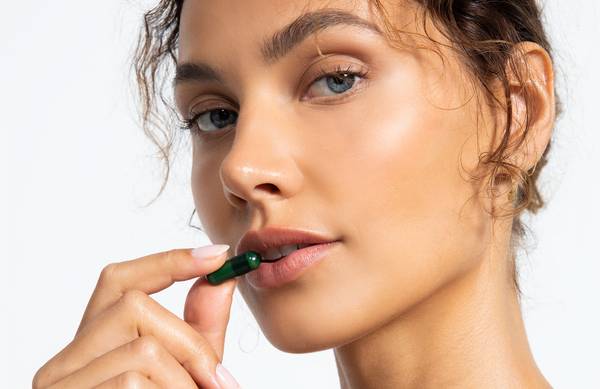The best skincare ingredients to have in your beauty routine in 2023

The best skincare ingredients to have in your beauty routine in 2023
Forget about trending skincare and discover the expert-approved ingredients that will level-up your beauty routine in 2023.
Leave excess skincare and ineffective routines in 2022. Now is the perfect time to make new skincare resolutions and start seeing results in targeting your key concerns. With help from renowned skincare experts, we’re unpacking the ingredients to have in your beauty routine for a year of your best skin yet.
Read on for professional skincare advice from dermal therapist and founder of Dolce Vita Skin Vita Catanzariti, aesthetic clinician Mai Guillou from Skin to Heart and aesthetician Peta Friend of Will & Peta.
The best ingredients for fine lines and wrinkles
Retinol. Retinol. Retinol. The ingredient hard to gatekeep, retinol will continue to be one of the most sought-after topical skincare ingredients of 2023. "Retinol is seen as a non-negotiable in skincare, mostly because it has been around for years and has also been widely researched and tested over the years,” explains Mai Guillou.
An effective solution for smooth, healthy skin, it helps increase collagen production and stimulate cell turnover to ultimately decrease the appearance of pores, fine lines, wrinkles and other signs of ageing. When used correctly, retinol can be a powerful tool in your anti-ageing routine, giving way for fresh, youthful-looking skin.
It’s best to integrate retinol low and slow into your routine to allow time for your skin to adjust. Especially if you have sensitive or reactive skin. "Retinol is the key ingredient to use at night followed by a moisturiser to suit your skin type,” says Vita Catanzariti, who recommends seeking out a slow-release retinol for a more gentle but still effective, approach to retinol.
If you want similar benefits to retinol but are after an even more gentle approach, skin aesthetician Peta Friend recommends “the new phyto-retinol”, an ingredient called Bakuchiol. “Bakuchiol tells your cells to regenerate and make collagen, which plump up your skin and reduce the look of lines and wrinkles,” she says. “But what makes this exciting is that it has the benefits of vitamin A, without the side effects.
The best ingredients for oily skin and acne
The quest for clear, blemish-free skin can seem elusive. But really, it just takes time to learn what works for your skin. According to Vita, there are several impactful ingredients you should consider integrating into your acne skincare routine this year. Like using a “gentle retinol at night, alternating AHA and BHA products with salicylic acid and utilising niacinamide to soothe inflamed skin.”
And it’s not only topical ingredients. As Mai Guillou from Skin to Heart states, “Zinc is a non-negotiable in our acne patients and any other inflammatory skin conditions for ingesting as it helps regulate oil glands.” Really, ingestible acne supplements can supercharge your skin care routine and are proven to heal skin from the inside out. Powered by a synergy of active ingredients and essential skin supportive nutrients, like therapeutic doses of zinc and vitamin A, Vida Glow’s Clear helps to target oily and acne-prone skin on a cellular level. Working from within for a calm complexion and visible results in as soon as a month.
Importantly, for sensitive and acne-prone skin, less is more. Start introducing ingredients individually rather than overloading your routine to ensure your skin can tolerate them – and to also see how effective they are in treating your concerns.

The best ingredients to treat pigmentation and brighten skin
Pigmentation concerns, whether its hormonal, post-acne marks or sun-induced pigment, can be stubborn and hard to treat – especially if your exposure to harsh sun is constant. So, if you’re noticing changes in your skin tone and seeing new dark spots appearing, the best ingredients to lean on this year are vitamin C and plant extracts.
Vitamin C, also known as ascorbic acid, is a powerhouse antioxidant that defends against free radical damage that can cause hyperpigmentation. Vitamin C works to protect and prevent further damage to the skin, while also stopping more dark spots from appearing and lightening the appearance of existing discolouration.
While there are multiple forms of Vitamin C, Mia explains, “L ascorbic acid is the most bioavailable, but also highly unstable.” Sophisticated formulations will have a balanced PH and additional ingredients for stability.
Although a powerhouse ingredient, Mia does not recommend Vitamin C formulations for acne-prone skin or rosacea skin. “In our clinic, we work our way up to using this ingredient, as popular as it is.”
Liquorice root is a plant extract with anti-inflammatory and antioxidant properties that protects the skin from damage, helps skin recover and repair, and brightens existing discolouration. It also pairs great with
Though as Vita notes, “Skin care is a holistic journey – and doesn’t stop at the surface. Addressing both internally and externally will result in your best outcome.” So having a bidirectional routine with both topical and ingestible ingredients is key for 2023. Looking specifically at pigmented and dull skin, combining a targeted ingestible solution like Vida Glow’s Radiance can work synergistically with your topical routine to maximise results. Packed with skin-brightening ingredients like vitamin c, plant extracts, efficacious antioxidants and zinc, Radiance improves dull and discoloured skin within weeks.
The best ingredients for dry skin and locking in moisture
This year dewy, glowing skin is in the bag. To keep your complexion plump and hydrated, adding ingredients like hyaluronic acid into your dry skin routine is essential. It’s perfect for all skin types since it’s naturally present in your body – so even those with sensitive skin are at low risk of irritation.
We know lack of moisture is one of the main culprits of ageing skin, which is why this ingredient is a must-have when it comes to repairing your skin’s moisture barrier. And according to Peta, Oligo-Hyaluronic Acid is the ingredient of choice. “Oligo-Hyaluronic Acid is an extremely short-chain hyaluronic acid with very low molecular weight. It can penetrate deep into the skin and provides a moisture depot effect, much like a dam within the skin.” It works to activate the skin's own hyaluronic acid synthesis to promote hydrated, moisturised skin.
For 2023 we’re saying ditch the buzzy ingredients and trends, and follow the advice of skin experts to set yourself up for a year of thriving skin.